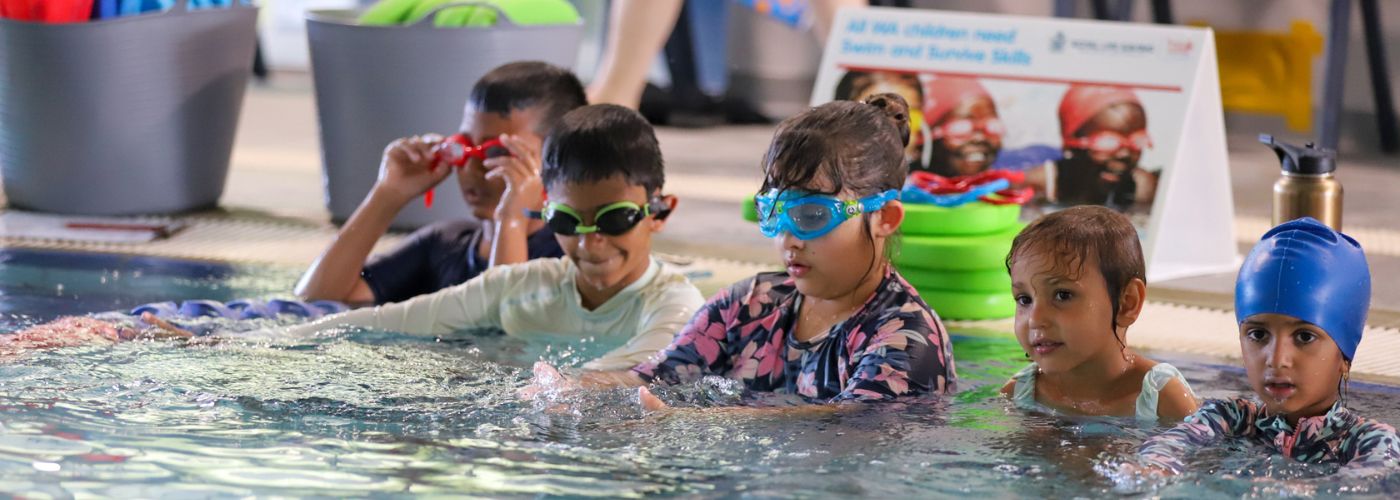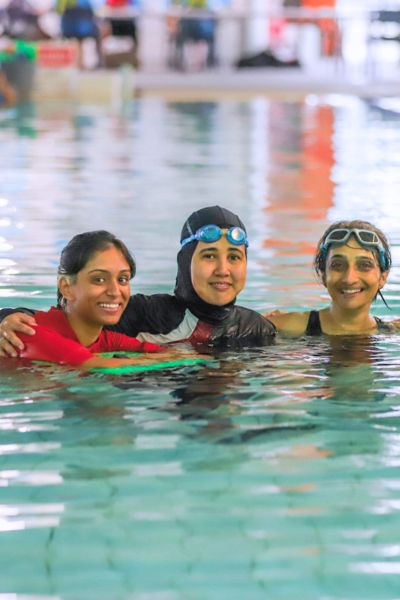
26 June 2025
Multicultural swimming lessons build skills for life
Last week was World Refugee Day, a time to recognise the strength and resilience of people who’ve been forced to flee their homes, and to reflect on how we can build more welcoming and inclusive communities. 
At Royal Life Saving WA, our Access and Equity programs are committed to providing water safety education to Western Australian multicultural communities year-round. In Term 2, more than 268 people from culturally and linguistically diverse (CaLD) backgrounds took part in our Multicultural Swim and Survive programs across the Perth metro area and South West— including at Balga, Riverton, Wangara and Cannington and Bunbury.
These programs provide a safe and supportive environment for CaLD adults and children, including recent arrivals and those from refugee backgrounds, to learn essential swimming and water safety skills.
Classes at Cannington had record attendance this term, with the Tuesday Women’s Only class welcoming over 28 participants, and the Thursday Multicultural Children’s program had 76 kids enrolled— the highest turnout these sessions have seen all financial year, despite the cooler weather.
Royal Life Saving WA Inclusions Coordinator Divya Prabha oversees programs across the Perth metro area and says the growth of the Cannington sessions is especially meaningful to her:
"It is satisfying to see an increase in participation numbers in our women's program at Cannington Leisureplex as I used to teach these women myself when I was a teacher. It was touching to see many familiar faces now in higher stages, committed to staying fit and progress through the stages with such enthusiasm."
The demand for inclusive water safety education continues to grow. According to the WA Census 2021, the local government areas of Canning, Wanneroo, Swan and Stirling are among the top ten in WA with the largest populations of humanitarian migrants. These insights help us deliver programs to support communities that need it most.
While people born overseas remain overrepresented in WA’s drowning statistics, our Multicultural programs work closely with local councils and community groups to remove barriers and make water safety education accessible to all.
To learn more about our Multicultural Swim and Survive programs, or how to get involved, click the link below.

